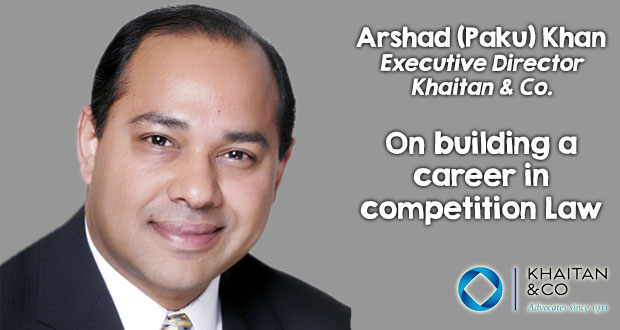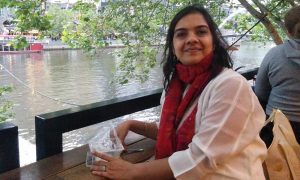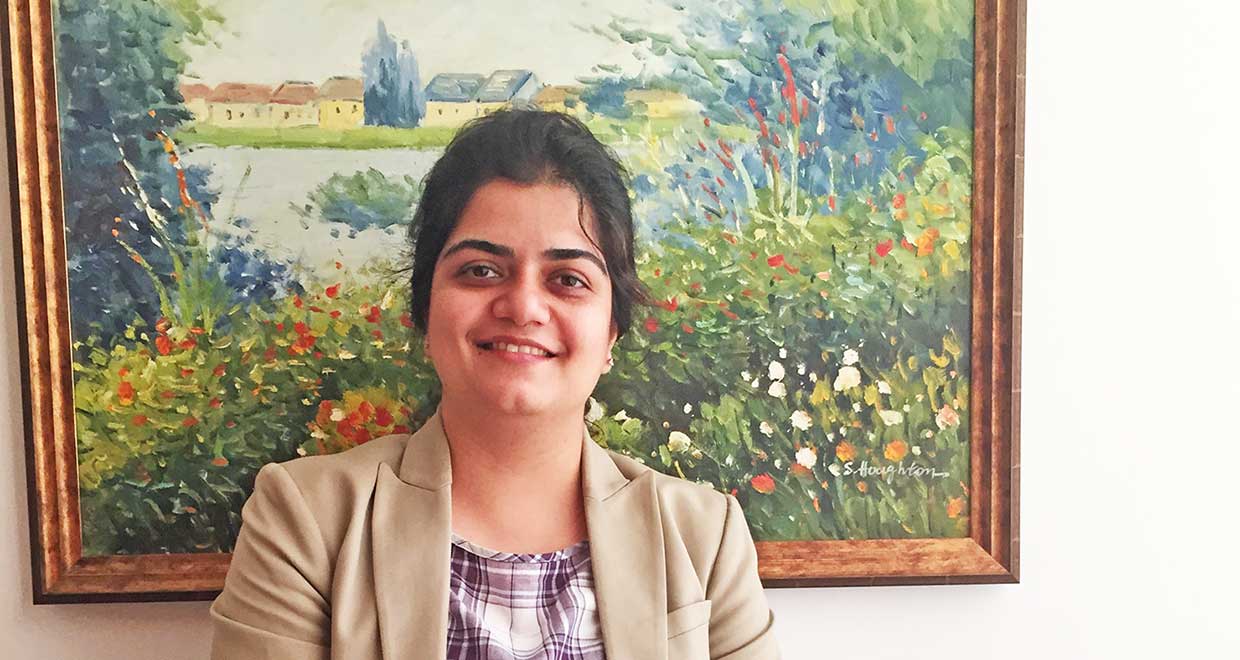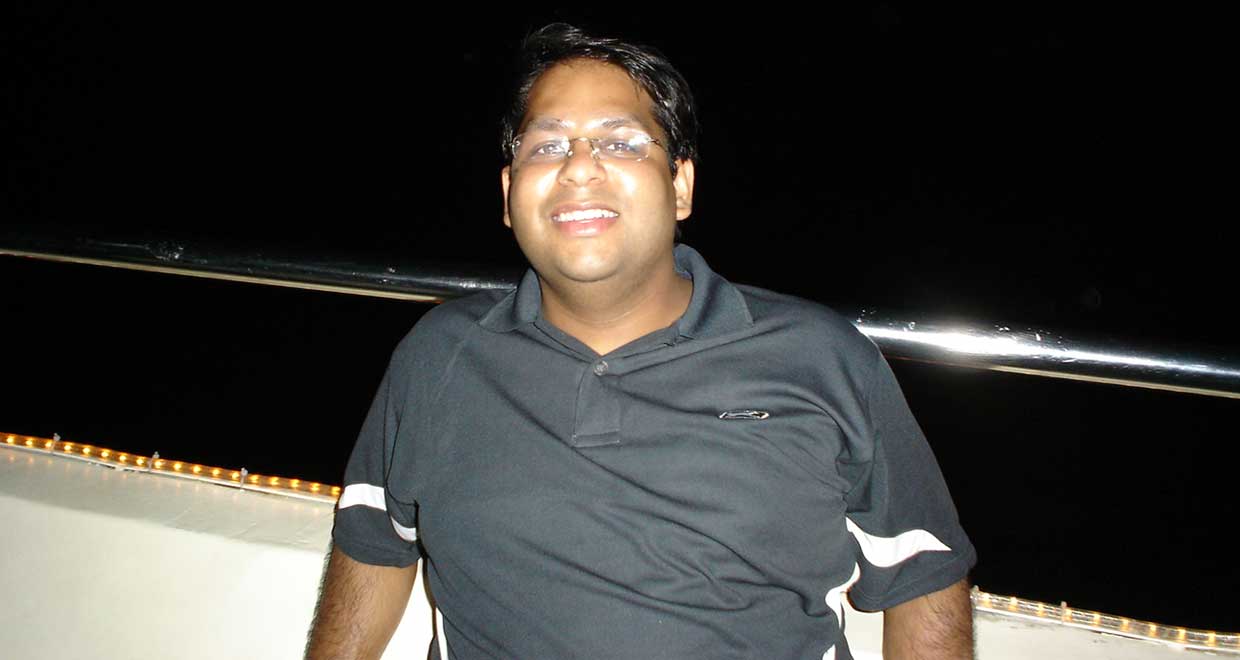Arshad (Paku) Khan graduated from the Vanderbilt Law School in Nashville, Tennessee, USA in 1991. He is currently the executive director of the competition/antitrust law team of Khaitan & Co, one of the largest and most experienced practices in India. Paku is a highly experienced competition lawyer with nearly 25 years of real-world experience with key roles in all aspects of Indian, EU, Irish and US competition/antitrust law.
We requested him to share his insights on:
- Starting out a legal career in the U.S
- Work at the Irish Competition Authority and other European firms
- Establishing a new practice area for an Indian law firm
Please tell us a bit about your pre-law life.
My parents – both of whom have, sadly, passed away – moved to the US in the 1960’s, and that was where I was born, raised, and educated, living there for the first 35 years of my life.
Nobody in my family was a lawyer – only doctors or scientists. This meant that I had to learn law all by myself, with no one in the family to guide the way. However, my parents supported me by putting an extraordinary premium on education and reading, and that has been tremendously helpful in my career. Since I had no prior knowledge of the law, my mom suggested that I serve as a law firm runner/courier, to gain experience in whatever way possible. I did that in the US in the late 1980’s. That was loads of fun, and was my first taste of the law. I was also extremely fortunate to have some mentors early in my career who were fantastic lawyers, fantastic people, and fantastic teachers. This was vital in my early days of being a lawyer in the US, when I graduated in 1991.
What made you gravitate towards a legal career after a degree in Sociology?
At first, like almost everyone else in my family, I was going to be a doctor. However, in my third year of university, after taking, frankly, a horrible semester of organic chemistry, invertebrate biology, biochemistry, genetics, and neurobiology, I realized that I wasn’t really cut out to be a doctor because I never enjoyed science. On the other hand, subjects like language, history, literature, and other “arts” came naturally to me. My mom always – and very correctly – told me that I was better suited to be a lawyer than a doctor. Changing my career choice, even if it was at the last minute, has been one of my best decisions.
I guess I can also say that heroes of mine like Mahatma Gandhi and Abraham Lincoln, who were both excellent lawyers, made me think that a career in the law, rather than in medicine, was much more up my alley.
In terms of competition law (which is referred to as antitrust in the US), I sort of was selected by it rather than my selecting it. But when I got involved in the area in a substantive way, I realized that that was something I really loved. After my first year of law school, I clerked/interned at the antitrust law department of a law firm in Nashville, Tennessee. My boss there was a former senior in the Antitrust Division of the United States Department of Justice, and he was enormously helpful in teaching me the art of being a competition lawyer. I didn’t know anything about competition law at the time, but really enjoyed reading cases about predatory pricing. I never knew that companies did such things, me being quite naive!
After several years of private practice in antitrust, I become an Assistant Attorney General for the State of Tennessee and had a five-year stint as the in-house counsel at a large US bank holding company where I did a great deal of hands-on M&A work. This experience of working in private practice, in-house, and as a regulator, was tremendously beneficial to me. It gave me the ability to see the law from various perspectives (and often these are exceedingly different perspectives). It also gave me an opportunity to learn about how to think on “both sides of the table.” It’s very important to understand the other side’s thoughts and motivations.
What was your scope of responsibility during the tenure of your work at the Irish Competition Authority?
It is because of India that I came to Ireland, and it was ultimately because of Ireland that I came to India. Let me explain.
I had actually wanted to move to India in 1997 after having been a lawyer for six years in the US. I wanted to do what my parents did, when they left India in 1964 to come to the United States. I had basically lived my entire life in the United States, except for visits to my grandparents in Bihar and Kerala, and a few trips to Europe. So, I wanted to see what living overseas was like. In the autumn of 1997, I came to New Delhi and met lawyers from many law firms, went to hear some Supreme Court hearings, talked to legal institutes in New Delhi, and was very close to moving here. However, because my dad got sick, I put those plans on hold.
A few years later in 2002, one of my friends became a senior member of the Irish Competition Authority in Dublin, Ireland and mentioned to me that they had positions available for lawyers. I had to go to Dublin for a competitive interview, and was lucky enough to finish first in the panel. So I got an offer from the Irish Competition Authority. I thought I would give it a try for one year and that this would cure the wanderlust that I had. India frankly dropped off the radar screen for me when I moved to Ireland because I thought I would have a short one year stint in Dublin and then head back to the US.
That one year became seven years in Ireland. I spent three of those years at the Irish Competition Authority, never having done EU competition law before. However, my experience in US antitrust law helped me make the adjustment reasonably quickly.
The time at the Irish regulator was a tremendous experience for me. For example, I got front-line experience in dealing with cases on cartels and abuse of dominant positions as well as merger control matters. One of the great highlights of my time at the Irish competition authority was that I served as the Rapporteur for the EU Member States in the European Commission’s 2004 abuse of dominance decision against Microsoft, which was a case that the entire antitrust world (as well as non-lawyers) paid attention to. It was a real career highlight for me. Another really interesting thing I got to do at the Irish Competition Authority was dawn raids. Dawn raids are basically surprise investigations by the regulator. In the context of those investigations (I think I did about 20 or so), I gained experience regarding forensic technology and was appointed as the Irish representative to the EU/national competition authority forensic technology task force. In today’s day and age, that is an invaluable skill that I was lucky enough to obtain back then.
How different was it to work as a solicitor after working with a government authority?
(Mr. Khan worked as a senior solicitor at A&L Goodbody.)
I must say that working in a European law firm in the competition law practice was exceedingly busy. You had to juggle a lot of matters simultaneously to produce effectively flawless results, both substantially and linguistically, with little time on several cases. It was also a lot of responsibility. For example, I had one filing before the European Commission on a very well-known merger control matter, namely, Ryanair’s hostile takeover of the Irish flag carrier Aer Lingus. My colleagues and I worked from 8 AM to 4 AM, Monday to Sunday, for an entire month. I had to repeat the exercise several times in the case. That clearly taught me the value of time management and of thinking carefully about your case in order to anticipate roadblocks.
Any time management or work-life balance tips for our readers?
The number one technique that I have for case management is planning ahead as much as possible. The moment you receive a case or matter, think ahead about every issue that you will confront, from the beginning to the end. Of course, in many cases, there will be unexpected issues to deal with, that will always arise. There is nothing you can do about those, except deal with them as they come up. However, if you have visualized in your mind’s eye the case from start to finish, I guarantee that you will always have much better results than merely being bounced around from issue to issue and making things up as you go along.
In terms of time management, I have never been a believer in putting in “face time” to impress people, either when I was being supervised or when I was supervising. I’m happy to pull an all-nighter if it’s necessary, and sometimes it is indeed necessary. However, what I found in my professional career of nearly 25 years is that planning ahead, including planning each day in the morning, is a great way to manage your time. Many of those all-nighters or even late nighters are really not necessary if you have effective planning and real teamwork and communications with your colleagues. Some people think the phrase “work smarter, not harder” is silly. I think there is a profound philosophy encapsulated in those words.
Above all, put your family first. They are simply irreplaceable. It is very, very easy to get immersed in work, and forget about your loved ones. But, if your work causes your personal life to suffer, that’s going to have a negative influence on your work. The work will always be there.
I am very lucky to be in a firm like Khaitan & Co that values this work-life balance greatly. Because it is a great place to work, you feel a deep sense of pride in what you do.
What circumstances lead to your move to India?
I was recruited to come to India in April 2009 by another law firm (Amarchand Mangaldas, where I served as Director of the competition law practice) because portions of the Competition Act were going live in May 2009. I was living in Dublin, Ireland, when I first got the query about coming to India. When I started realizing the immense potential in India, which was a country where I had always wanted to live, it became obvious that moving to New Delhi was the right move. I am a big believer in the concept of ‘one world’, and India is an integral part of this global economy. The chance to be a part of that was an offer I couldn’t refuse.
I must say that the fun and adventure in moving to India was even more special given that I had to move our family of four (including a newborn). That was a challenge in its own right!
In terms of the working environment in India, I have really relished the opportunity of working with some outstanding young lawyers whom I’ve had the privilege of knowing.
What does your role as Executive Director of Competition/Antitrust law at Khaitan & Co. entail?
As Executive Director of Khaitan & Co’s competition/antitrust practice, my role is to consider how competition law matters in India would be treated under EU and US competition/antitrust laws. Competition law is very much an international law, and the experience in the US and in Europe has been invaluable to understanding how the Indian competition regime will, can and should work.
How does the Indian Competition Law Regime fare against that of the UK or the USA?
It’s very important to understand that India is one of the last of the major countries to implement a competition law regime. Accordingly, India is fortunate to have the “last mover advantage”, as it can look to the mistakes and successes of other jurisdictions to improve its own regime. Simply stated, there is a large amount of synergy between Indian competition law and the comparable laws in other jurisdictions like the US and EU. The laws are not identical, but they are more similar than they are different. There’s a lot of exceedingly useful guidance that can be found that is often very relevant to the Indian regime.
For example, the United States had its antitrust law in 1890, and the EU has had its competition laws for decades. In contrast, with respect to the Competition Act, 2002 (as amended), the prohibitions in Section 3, dealing with anti-competitive agreements (including cartels) and Section 4, dealing with abuse of a dominant position, have only been in effect for a little more than five years. Indian merger control has an even shorter lifespan of only three years. In my view, by any definition, India is still in its infancy with respect to competition law. However, that’s not a bad thing, because India can take that vast amount of experience in the rest of the world and use that to help fashion the people of India, from the richest to the poorest and from the strongest to the weakest.
That’s emphatically not to say that what happens in the US or the EU is merely going to be “rubberstamped” in India. Competition law is much more sophisticated than that. For example, market conditions in Mumbai are very different than they are in Manhattan or Montevideo. A good competition lawyer has to consider those market dynamics, apply the law to those facts, and use international precedents in the correct fashion to understand how other jurisdictions have looked at the issue.
What advice would you like to give to a law student who wishes to make a career in competition law?
There’s absolutely no reason why a new lawyer shouldn’t go right into competition law. But I think it’s very important to understand that even though the substantive provisions of the Competition Act are very short, the law is incredibly complicated, involving a mix of law, economics, and market conditions. There is a tremendous amount of artistry that is involved in being a great competition lawyer, as the same set of facts in one industry can result in a totally different outcome in another industry. The key to being a great competition lawyer is understanding what that mix is.
What would be your advice to a law student or young lawyer who is indecisive about their area of specialisation?
Law students or newly-inducted lawyers should try to immerse themselves in as many areas of law as they can. It first starts in law school, where you have the luxury of learning many different aspects of law. The reality of the situation, however, is that if you don’t use that knowledge, you lose that knowledge.
As I stated earlier, I have been lucky enough to have been a private practitioner, in-house counsel, and a regulator in multiple jurisdictions. I’ve had the opportunity to also do complex litigation and M&A work. All of those experiences have been important to my career.
To be a great lawyer, you need to be a great peacemaker and find a way to bring resolution and closure. The experience you get from being knocked down by mistakes, and facing defeat but learning from them and rising to fight yet again, is essential and is something you only get over time. These, to me, are the hallmarks of a lawyer who will indeed go far.
Finally, what would be your parting message to our readers?
You must love what you are doing. It is as simple as that. Money and fame are things that may or may not follow you in this life; however, none of those things are worth anything if you don’t love what you do. The fact of the matter is that I love being a lawyer. I sort of fell into the profession by happenstance, and it was one of the very best things that could’ve ever happened to me.
I like to fix things that are broken, and I like to see injustices cured. I like to be deeply involved in my matters and try to treat each matter as if it were my own. Taking ownership of a matter and treating as if it were your own, and being sensitive to a client’s needs, will take you a very long way.
























